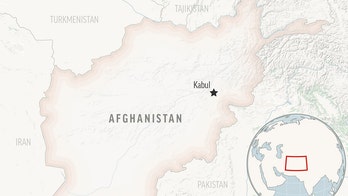Denmark has become the first country to implement a tax on livestock emissions, setting a precedent and reigniting global discussions on climate change mitigation strategies. The move has sparked mixed reactions, with some expressing concern while others welcome the bold step.
Denmark's bold move to impose a tax on livestock emissions has reverberated across the globe, stirring a lively debate on the role of agriculture in climate change. While some hail the decision as a necessary step toward reducing greenhouse gas emissions, others express concern over its potential impact on farmers and the agricultural industry.

Denmark Levies Methane Tax on Livestock, Sparking International Debate
At the heart of the debate lies the recognition of methane's potent greenhouse effect. Methane, primarily emitted by landfills, oil and gas systems, and livestock, traps 87 times more heat than carbon dioxide over a 20-year timeframe, according to the U.S. National Oceanic and Atmospheric Administration.
Driven by this alarming threat, Denmark's ambitious goal is to reduce greenhouse gas emissions by 70% below 1990 levels by 2030. Taxation stands as a key tool to incentivize emission reductions. In 2030, livestock farmers will pay $43 per ton of carbon dioxide equivalent, escalating to $108 by 2035. However, an income tax deduction will mitigate the actual cost to $17.3 in 2030 and $28 in 2035.

Denmark Levies Methane Tax on Livestock, Sparking International Debate
Livestock contributes approximately 32% of human-caused methane emissions, highlighting the urgency of addressing this significant source. Taxing livestock emissions is seen as a direct and effective method to curb methane production.
Proponents of the tax argue that it provides financial incentives for farmers to adopt innovative practices that reduce their animals' carbon footprints. Such practices may include improving feed efficiency, utilizing methane-capturing technologies, and implementing sustainable farming methods.
Conversely, critics of the tax express concerns about its potential negative impact on farmers' livelihoods. They fear that taxing emissions will disproportionately burden farmers, especially small-scale producers, and could lead to financial hardship or even farm closures.
Further concerns arise from the potential disruption to international trade. Countries that implement similar taxes may gain a competitive advantage over those that do not, potentially impacting global agricultural markets.
New Zealand's recent reversal of its own livestock emissions tax is a sobering reminder of the political and economic challenges associated with such measures. After facing significant opposition from farmers, the tax was removed, highlighting the complexity of balancing climate action with the interests of the agricultural sector.
Denmark's move is the first of its kind, and its success or failure will likely influence future climate policy decisions around the world. The tax experiment will be closely watched by other countries grappling with the challenge of reducing agricultural emissions while ensuring the economic viability of their farming industries.
The future of livestock emissions taxation remains uncertain, but Denmark's bold step has ignited a critical conversation about the role of agriculture in climate mitigation and the challenges that lie ahead in transitioning to a sustainable food system.










